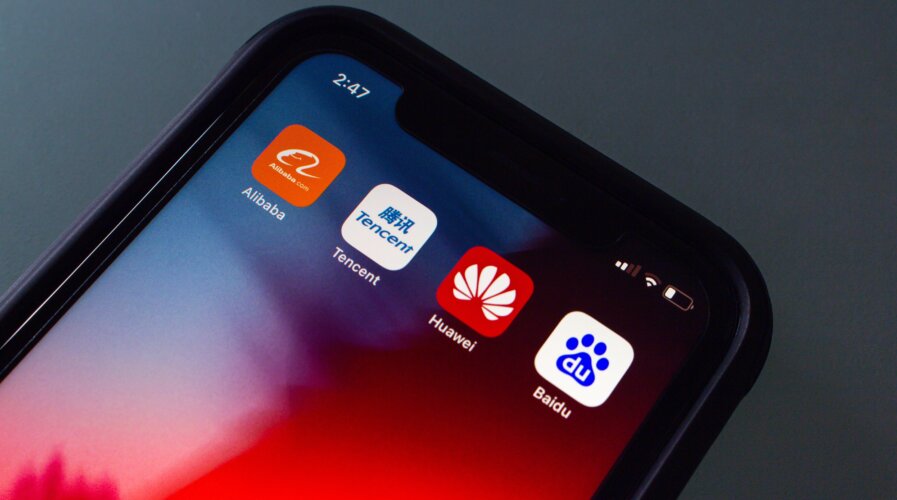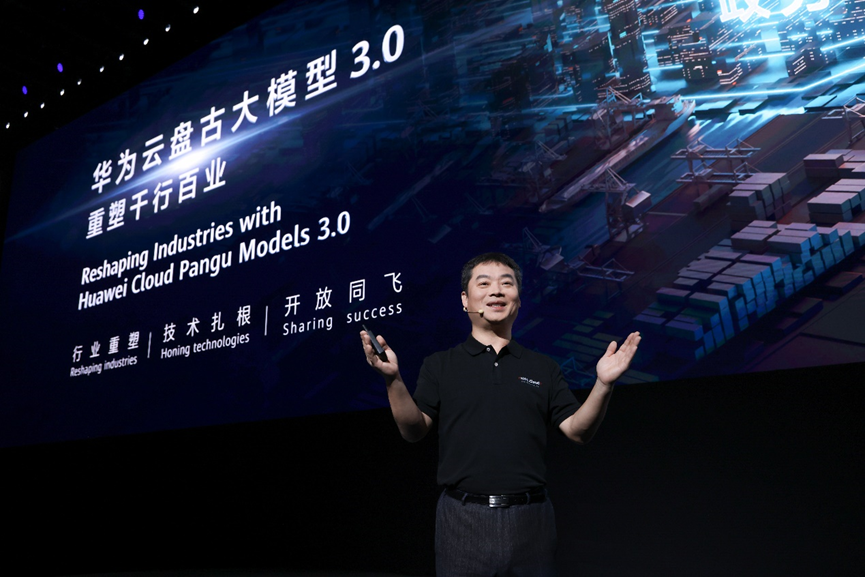
Chinese companies are pouring investments into the country’s generative AI scene, with tech giants Huawei and Alibaba, most recently their respective AI models.Source: Shutterstock
The generative AI products Huawei and Alibaba recently unveiled
|
Getting your Trinity Audio player ready... |
- Alibaba showcased an AI image generator named Tongyi Wanxiang.
- Huawei demonstrated the third iteration of its Panggu AI model recently.
Just after Chinese tech giants, Alibaba and Huawei, unveiled their respective generative AI products, Beijing published new rules on the technology. The move made China among the first countries worldwide to regulate the technology that powers popular services like ChatGPT.
The country’s top internet watchdog, the Cyberspace Administration of China, unveiled a set of updated guidelines on July 13 to manage the burgeoning industry. The rules are set to take effect on August 15. Compared to a preliminary draft released in April, the published version, “interim measures,” appears to have relaxed several previously announced provisions.
The Chinese authorities’ softened tone in the latest draft indicates that the regulators are seeking to support the development of generative AI. The guidelines are only for companies making AI products for the public; others developing machine learning technology need not be concerned.
The new rules also indicate that generative AI programs must “adhere to core values of socialism” and can not be used to attempt to overthrow the state power of the socialist system. Currently, the rules will only apply to services available to the general public in China. Technology that overseas users are using is exempt.
According to the rules document, the state “encourages the innovative use of generative AI in all industries and fields” and supports the development of “secure and trustworthy” chips, software, tools, computing power, and data sources. China also wants its tech companies to participate in the “formulation of international rules and standards” concerning generative AI.
However, the state will force its AI companies to register their algorithms with the government and conduct security reviews to ensure their products do not “mobilize” the public. In the past couple of months alone, Chinese companies are pouring investments into the country’s generative AI scene, with tech giants Huawei and Alibaba, most recently their respective AI models.
Tongyi Wanxiang: An AI image generator by Alibaba
At the World Artificial Intelligence Conference, which began on July 6 for three days in Shanghai, Alibaba’s subsidiary, Alibaba Cloud, presented an image generator. The generator, Tongyi Wanxiang, creates images in several styles, including sketches or 3D cartoons, responding to user commands in English and Chinese.
For context, Tongyi Wanxiang is powered by Alibaba Cloud’s proprietary large model Composer, a text-to-image diffusion model capable of generating photo-realistic images given any text input. The AI tool will initially only be available to enterprise customers in beta form.
“High-quality generative AI imagery will become more accessible, facilitating the development of innovative AI art and creative expressions for businesses across a wide range of sectors, including e-commerce, gaming, design, and advertising,” Jingren Zhou, CTO of Alibaba Cloud Intelligence, said.
The AI tool by Alibaba Cloud will rival the likes of Midjourney and Stable Diffusion. Still, Tongyi Wanxiang will be remarkably adaptable to companies’ needs in the world’s second-largest economy. One of its earlier generative AI models, Tongyi Qianwen, has amassed over 300,000 beta testing requests since its launch in April.
Alibaba Cloud has partnered to build customized AI models for industry-specific applications. Alibaba Cloud also took the stage to launch ModelScopeGPT. This framework uses large language models in Alibaba’s open-source tech community, ModelScope, as an interface to link together various AI models to perform tasks more efficiently.
“Many small and medium-sized enterprises lack the technical capability and know-how to grasp the opportunity created by artificial intelligence (AI) advances. Alibaba Cloud is building a suite of digital tools that can help them,” the tech giant said.
Huawei Cloud Pangu Models 3.0 and Ascend AI cloud services

Zhang Ping’an, Executive Director of Huawei and CEO of Huawei Cloud. Source: Huawei
As for Huawei, the company took the chance at its annual developer conference on July 7 to exhibit the third iteration of its Panggu AI model. Huawei said its Pangu 3.0 model differentiates itself from many other applications by focusing on serving industrial usages rather than generating content.
“Pangu Models 3.0 will focus on building up core competitiveness and helping customers, partners, and developers operationalize AI and drive real value creation across industries,” Zhang Ping’an, Huawei’s Executive Director and CEO of Huawei Cloud said during his keynote speech at the HDC.Cloud 2023.
Huawei also shared that the model aims to improve the efficiency of safety inspection for freight train carriages and AI support for local government services. To top it off, the Pangu 3.0 model seeks to provide more accurate weather predictions. Huawei Cloud unveiled that Pangu-Weather, its AI weather prediction model, demonstrated higher precision than traditional numerical weather forecast methods.
A statement by Huawei indicated that Pangu Models 3.0 are available in different sizes: 10 billion parameters, 38 billion parameters, 71 billion parameters, and 100 billion, meeting diverse customer needs and other standards on latency and response times.
With Ascend AI cloud services, a single compute cluster can provide 2,000 petaFLOPS of compute capacity, and a 1,000-card cluster can train a multi-billion parameter model for an uninterrupted 30 days. “More reliable AI computing power has helped make large models more accessible than ever to industry customers,” Huawei added.
Besides Huawei and Alibaba, Baidu has also been making big moves in AI. The Chinese search engine is claiming that it’s AI chatbot has also outperformed OpenAI’s ChatGPT in several key areas.
READ MORE
- Safer Automation: How Sophic and Firmus Succeeded in Malaysia with MDEC’s Support
- Privilege granted, not gained: Intelligent authorization for enhanced infrastructure productivity
- Low-Code produces the Proof-of-Possibilities
- New Wearables Enable Staff to Work Faster and Safer
- Experts weigh in on Oracle’s departure from adland


